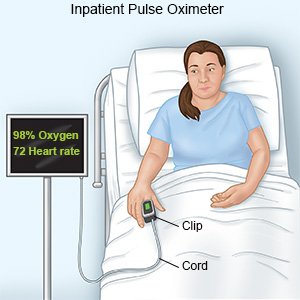Non-Small Cell Lung Cancer
Medically reviewed by Drugs.com. Last updated on May 6, 2024.
Non-small cell lung cancer (NSCLC) is the most common type of lung cancer.
 |
WHILE YOU ARE HERE:
Informed consent
is a legal document that explains the tests, treatments, or procedures that you may need. Informed consent means you understand what will be done and can make decisions about what you want. You give your permission when you sign the consent form. You can have someone sign this form for you if you are not able to sign it. You have the right to understand your medical care in words you know. Before you sign the consent form, understand the risks and benefits of what will be done. Make sure all your questions are answered.
You may need extra oxygen
if your blood oxygen level is lower than it should be. You may get oxygen through a mask placed over your nose and mouth or through small tubes placed in your nostrils. Ask your healthcare provider before you take off the mask or oxygen tubing.
Keep the head of your bed raised to help you breathe easier.
You can also raise your head and shoulders on pillows or rest in a reclining chair. If you feel short of breath, let healthcare providers know right away.
Pulse oximetry
is a device that measures the amount of oxygen in your blood. A cord with a clip or sticky strip is placed on your finger, ear, or toe. The other end of the cord is hooked to a machine. Never turn the pulse oximeter or alarm off. An alarm will sound if your oxygen level is low or cannot be read.
 |
Medicines:
- Pain medicine may be given. Do not wait until the pain is severe before you ask for more medicine.
- Antinausea medicine prevents or decreases nausea or vomiting caused by treatment.
Tests:
- Pulmonary function tests may be done to check how well your lungs are working.
- A bone scan may show if cancer has spread to your bone.
- X-ray, ultrasound, CT, or MRI pictures may show where the cancer is in your body. You may be given contrast liquid to help your lungs show up better in the pictures. Tell the healthcare provider if you have ever had an allergic reaction to contrast liquid. Do not enter the MRI room with anything metal. Metal can cause serious injury. Tell the provider if you have any metal in or on your body.
- A PET scan may be done to see if the cancer has spread to other parts of your body. Radioactive liquid is injected into your IV to help cancer cells show up better in pictures.
- Blood tests may be done to get information about your overall health.
- A sputum sample may be tested for cancer cells.
- A biopsy , or sample of lung tissue, can be taken to test for cancer. A biopsy can be done through several procedures such as bronchoscopy, endobronchial ultrasound, or mediastinoscopy.
- A thoracentesis tests the fluid around the lung for cancer cells. It is removed with a small needle inserted through the chest.
Treatment:
- Medicine may be used to kill cancer cells or shrink the tumor. It may also be given to help the body find and kill cancer cells, or stop the growth of cancer cells.
- Radiofrequency ablation uses radio waves to heat the tumor and destroy cancer cells.
- Radiation therapy uses x-rays to kill or shrink cancer cells. The two types of radiation therapy are external beam radiation therapy and brachytherapy.
- Surgery may be needed to remove the cancer, part of the lung, or the entire lung. Surgery may include video-assisted thoracic surgery (VATS), or an open thoracotomy.
RISKS:
NSCLC may spread to other parts of your body such as your bone or brain. You may have side effects from medicines used to treat NSCLC, such as nausea, vomiting, and hair loss. Radiation therapy may burn your skin.
CARE AGREEMENT:
You have the right to help plan your care. Learn about your health condition and how it may be treated. Discuss treatment options with your healthcare providers to decide what care you want to receive. You always have the right to refuse treatment.© Copyright Merative 2024 Information is for End User's use only and may not be sold, redistributed or otherwise used for commercial purposes.
The above information is an educational aid only. It is not intended as medical advice for individual conditions or treatments. Talk to your doctor, nurse or pharmacist before following any medical regimen to see if it is safe and effective for you.
Learn more about Non-Small Cell Lung Cancer
Treatment options
Care guides
Symptoms and treatments
Further information
Always consult your healthcare provider to ensure the information displayed on this page applies to your personal circumstances.
